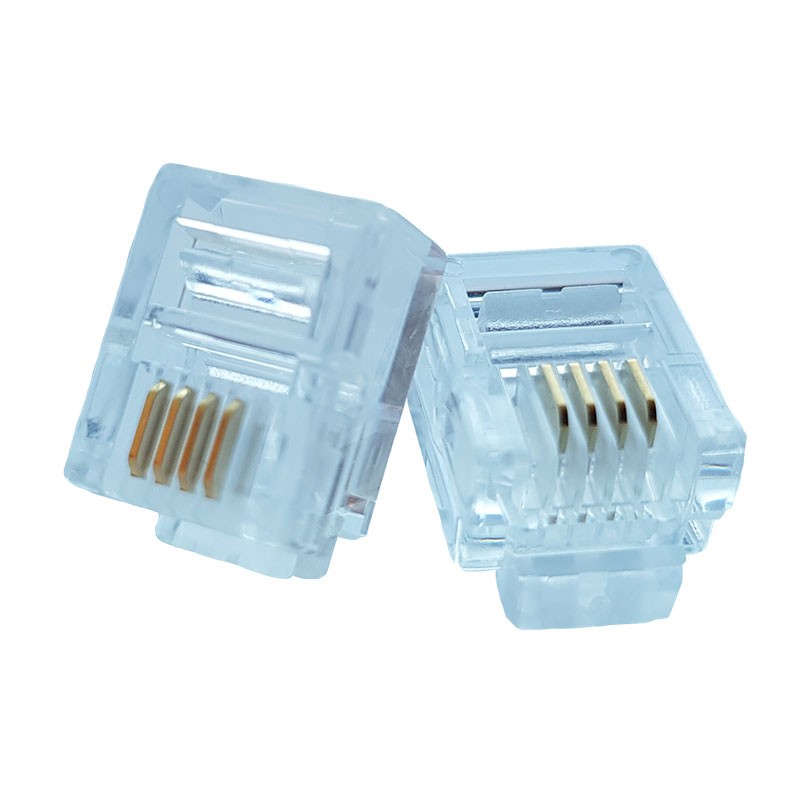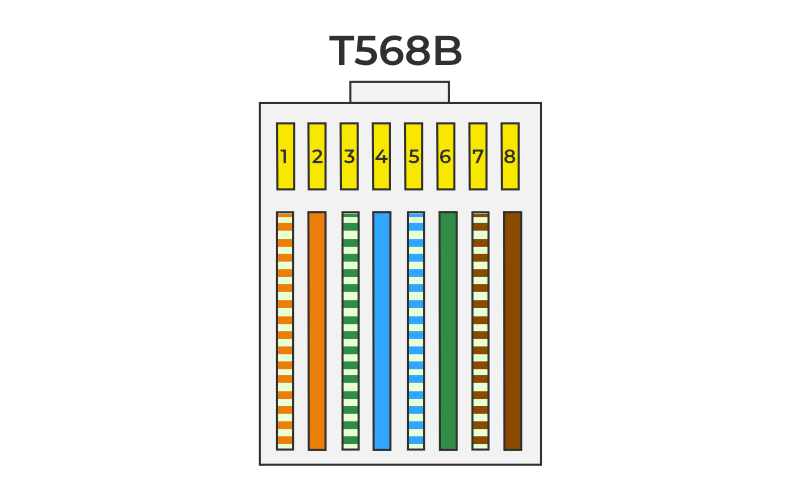RJ45 and RJ11
RJ45 and RJ11
RJ45 and RJ11 are both types of connectors used in telecommunications, but they serve different purposes and have distinct characteristics:
RJ11: This connector is commonly used for connecting telephone lines. It has 6 positions and 4 contacts (6P4C). RJ11 connectors are typically used for standard telephone connections, including landline phones and DSL (Digital Subscriber Line) connections. They are smaller in size compared to RJ45 connectors.

RJ45: This connector is used for Ethernet connections, including networking cables for computers, routers, switches, and other network devices. RJ45 connectors have 8 positions and 8 contacts (8P8C). They are larger in size compared to RJ11 connectors and are designed to accommodate more wires, enabling faster data transfer rates.

- Size: RJ11 connectors are smaller than RJ45 connectors.
- Number of Contacts: RJ11 connectors have 4 contacts, while RJ45 connectors have 8 contacts.
- Application: RJ11 connectors are primarily used for telephone connections, while RJ45 connectors are used for Ethernet networking.
- Data Transfer Rate: RJ45 connectors support faster data transfer rates compared to RJ11 connectors, making them suitable for high-speed networking.
Comments
Post a Comment